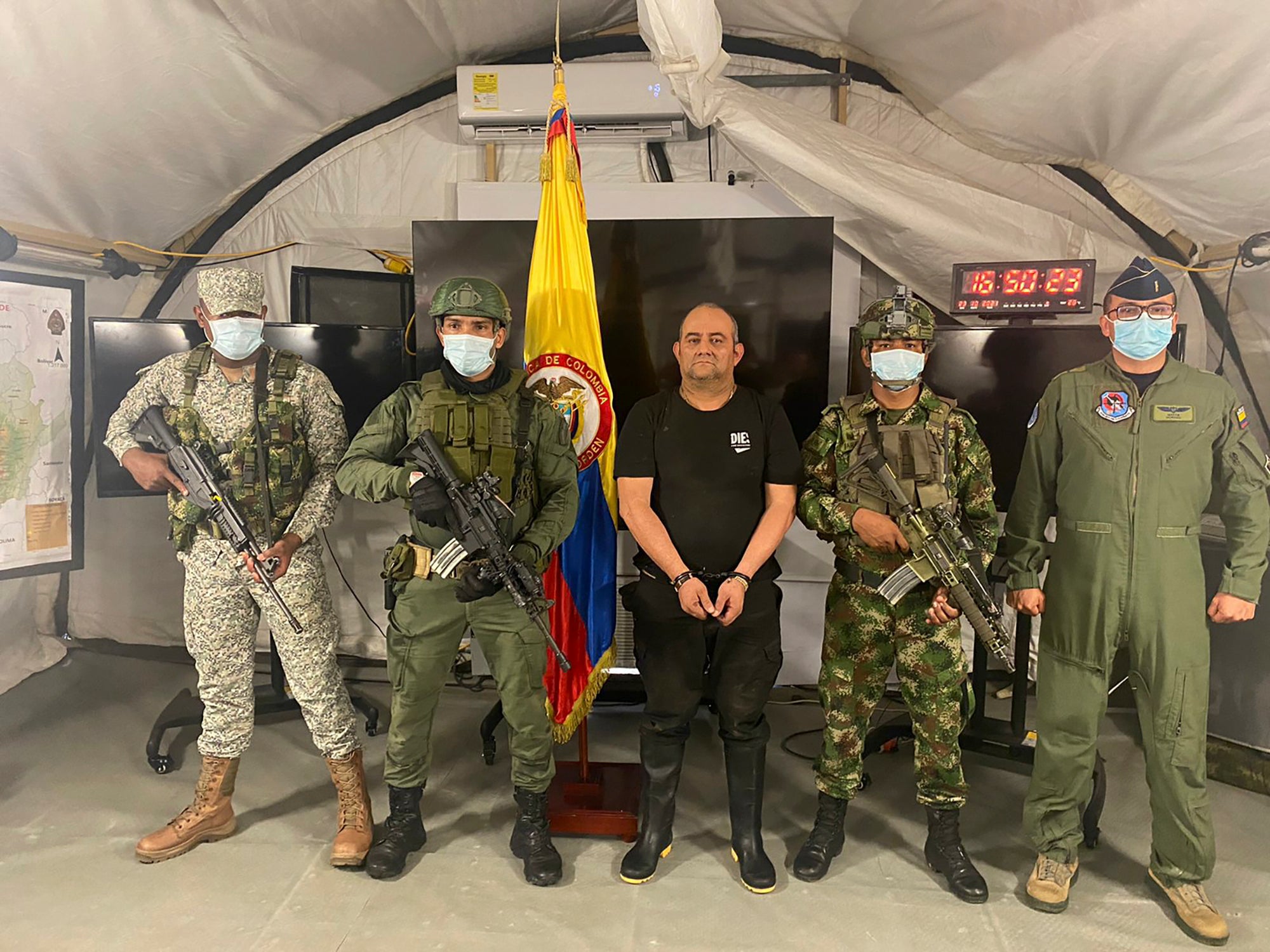Colombia’s most wanted drug trafficker captured in jungle raid after decade on run
Colombian authorities captured the country’s most wanted drug trafficker for whom the US government had been offering a $5m

Your support helps us to tell the story
From reproductive rights to climate change to Big Tech, The Independent is on the ground when the story is developing. Whether it's investigating the financials of Elon Musk's pro-Trump PAC or producing our latest documentary, 'The A Word', which shines a light on the American women fighting for reproductive rights, we know how important it is to parse out the facts from the messaging.
At such a critical moment in US history, we need reporters on the ground. Your donation allows us to keep sending journalists to speak to both sides of the story.
The Independent is trusted by Americans across the entire political spectrum. And unlike many other quality news outlets, we choose not to lock Americans out of our reporting and analysis with paywalls. We believe quality journalism should be available to everyone, paid for by those who can afford it.
Your support makes all the difference.Colombian security forces have captured the country’s most wanted drug trafficker, a rural warlord who evaded a decade long manhunt by corrupting state officials and aligning himself with combatants on the left and right.
President Iván Duque likened the arrest on Saturday of Dairo Antonio Úsuga to the capture three decades ago of Pablo Escobar
Images circulating on social media show Úsuga handcuffed with his face planted to the ground.
Úsuga, better known by his alias Otoniel, is the alleged head of the much-feared Gulf Clan, whose army of assassins has terrorized much of northern Colombia to gain control of major cocaine smuggling routes through thick jungles north to Central America and onto the U.S.
He's long been a fixture on the US Drug Enforcement Administration’s most-wanted fugitives list, for whose capture it had been offering a $5m reward. He was first indicted in 2009, in Manhattan federal court, on narcotics charges and for allegedly providing assistance to a far-right paramilitary group designated a terrorist organization by the U.S. government.
But like many of his gunmen, he's also cycled through the ranks of several guerrilla groups, most recently claiming to lead the Gaitanist Self Defense Forces of Colombia, after a mid-20th century Colombian leftist firebrand.
He also faces criminal charges in Miami Tampa and Brooklyn federal courts.
Authorities said intelligence provided by the U.S. and U.K. led more than 500 soldiers and members of Colombia's special forces to Úsuga's jungle hideout, which was protected by an eight rings of security.
Úsuga for years flew under the radar of authorities by eschewing the high profile of Colombia's better known narcos.
He and his brother, who was killed in a raid in 2012, got their start as gunmen for the now-defunct leftist guerrilla group known as the Popular Liberation Army and then later switched sides and joined the rebels’ battlefield enemies, a right-wing paramilitary group.
He refused to disarm when that militia signed a peace treaty with the government in 2006, instead delving deeper into Colombia’s criminal underworld and setting up operations in the strategic Gulf of Uraba region in northern Colombia, a major drug corridor surrounded by the Pacific Ocean and Caribbean sea on either side.
Leaks and a network of safe houses at rural homesteads allowed him for years to resist a scorched-earth campaign by the military against the Gulf Clan.
But the war was taking its toll on the 50-year-old fugitive, who even while on the run insisted on sleeping on orthopedic mattresses to ease a back injury. In 2017, he showed his face for the first time on occasion of Pope Francis' visit to the country, publishing a video in which he asked for his group be allowed to lay down its weapons and demobilize as part of the country’s peace process with the much-larger Revolutionary Armed Forces of Colombia.
His arrest is something of a boost for the conservative Duque, who law and order rhetoric has been no match for soaring production of cocaine.
Land dedicated to the production of coca — the raw ingredient of cocaine — jumped 16% last year to a record 245,000 hectares, a level unseen in two decades of U.S. eradication efforts, according to a White House report.
AP